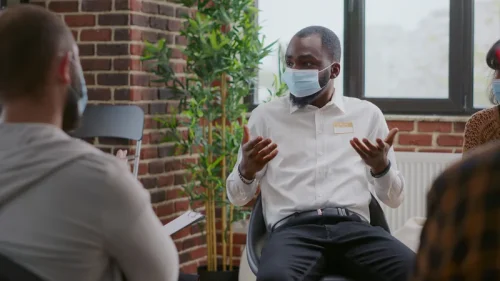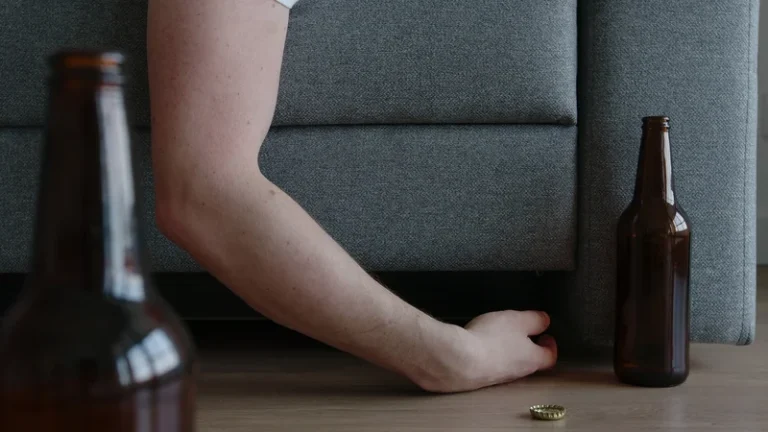Alcoholism and Diabetes Mellitus PMC

The researchers allowed the rats to forage for food for 15 minutes in a symmetric, Y-shaped maze and measured the animals’ hippocampal activity using tiny wires (i.e., microelectrodes) implanted in their brains. The activity—which corresponds to the middle portion of the lower left arm of the maze—is shown before alcohol administration (A), 45 to 60 minutes after alcohol administration (B), and 7 hours after alcohol administration (C). The dose of alcohol used in the testing session was 1.5 grams per kilogram of body weight— enough to produce a peak BAC of about 0.16 percent. (A corresponding BAC in humans would be twice the legal driving limit in most States.) As the figure illustrates, the cell’s activity was essentially shut off by alcohol. Neural activity returned to near-normal levels within about 7 hours of alcohol administration. To evaluate the effects of alcohol, or any other drug, on memory, one must first identify a model of memory formation and storage to use as a reference.
What Happened? Alcohol, Memory Blackouts, and the Brain

This latter possibility is made more likely by recent evidence that students who engage in repeated episodes of heavy, or binge, drinking are more likely than other students to exhibit memory impairments when they are intoxicated (Weissenborn and Duka 2000). Subsequent research provided additional evidence suggesting a link between blackouts and rapidly rising BACs. Goodwin and colleagues (1970) examined the impact of acute alcohol exposure on memory formation in a laboratory setting. The author recruited 10 male subjects for the project, all but one through the unemployment office in St. Louis, Missouri.
How Does Alcohol Impair Memory?
This may be due to the physiological differences that affect alcohol distribution and metabolism. As you drink more alcohol and your blood alcohol level rises, the rate and length of memory loss will increase. They found that alcohol dependence symptomspredicted an increased frequency of blackouts and consequences the followingyear.
- CBT helps people identify stressful triggers and put techniques in place to cope when they feel overwhelmed.
- Talk to one of our knowledgeable admissions navigators, who can answer your questions, explain your options, and get you started on your path to recovery.
- As a result of β-cell dysfunction and inadequate insulin release, postprandial and subsequently fasting glucose levels increased, due to incomplete suppression of hepatic glucose production and decreased efficiency of liver and muscle glucose uptake.
Discover more about Type 2 Diabetes

Avoid binge drinking, which is defined as consuming five or more drinks in about two hours for men, or four or more drinks for women. One study estimated that the odds of experiencing a blackout is about 50% when blood alcohol content reaches 0.22 percent. You may not have any memory of the time that’s passed when your blood alcohol content is above that threshold. Depending on the severity https://ecosoberhouse.com/ of your diabetes and other related health considerations, it may be a good idea to quit or limit your use of alcohol, as alcohol has a big effect on your blood sugar levels.
- We have not found any work in the literature that has investigated both hangovers and MBOs concurrently.
- As the name of these drinks implies, people typically serve them after a meal.
- In other words, perhaps their prior exposure to alcohol damaged the brain in a way that predisposed them to experiencing future memory impairments.
- That’s largely because the parts of your brain responsible for decision-making aren’t fully matured until around age 25.
- The best types of alcohol for people with diabetes are those with low sugar or carb content.
If you have diabetes and are wondering how much alcohol you should drink, it is worth reading the following list to see how much alcohol is contained in each type of drink. There is no need for people with diabetes to give up alcohol simply because of their diabetes. THC, the psychoactive compound found in marijuana, may also increase blackouts when combined with alcohol. If you experience a partial blackout, visual or verbal cues may help you remember forgotten events.
- With treatment facilities scattered across the country, AAC offers detox, inpatient and outpatient treatment, sober living, and more.
- For instance, alcohol severely disrupts the ability of neurons to establish long-lasting, heightened responsiveness to signals from other cells (Bliss and Collinridge 1993).
- When drinking alcohol is combined with the medications most often used to treat diabetes—particularly insulin and sulfonylureas, low blood glucose can result.
- It remains unclear exactly how alcohol interacts with receptors to alter their activity.
Blackouts Among Social Drinkers
Large quantities of alcohol, particularly if diabetes and alcohol blackouts consumed rapidly, can produce a blackout, an interval of time for which the intoxicated person cannot recall key details of events, or even entire events. En bloc blackouts are stretches of time for which the person has no memory whatsoever. Fragmentary blackouts are episodes for which the drinker’s memory is spotty, with “islands” of memory providing some insight into what transpired, and for which more recall usually is possible if the drinker is cued by others. Blackouts are much more common among social drinkers than previously assumed and should be viewed as a potential consequence of acute intoxication regardless of age or whether one is clinically dependent upon alcohol.


